Welcome to the world of sales funnel coaching, where strategic planning and targeted techniques can take your coaching business to new heights. If you’re a coach looking to maximize your results and attract high-ticket clients, then creating an effective sales funnel is essential.
Surprisingly, in this blog post, we’ll explore the ins and outs of building a successful sales funnel for your coaching business. From understanding your target audience’s challenges to crafting irresistible offers and measuring success, we’ve got you covered.
So buckle up as we dive into the exciting world of sales funnels and discover how they can change your coaching journey.
Let’s discover the power of “how to create a sales funnel coaching.”
Table of Contents
What Is A Sales Funnel?
At its core, a sales funnel is a visual representation of the customer journey. It consists of several stages. Each stage is designed to guide potential buyers closer to a purchase. The primary stages in a typical sales funnel are:
- Awareness: This is when potential clients become aware of your coaching services. They may come across your website, social media profiles, or other marketing materials.
- Interest: In this stage, prospects show an active interest in what you offer. They may subscribe to your newsletter, download a free resource, or engage with your content.
- Consideration:Potential clients are evaluating your coaching services. They may attend webinars, read blog posts, or interact with your online community.
- Decision: At this stage, prospects decide whether to become your clients. They might sign up for a consultation, request a discovery call, or initiate contact.
- Action: Finally, prospects take action by becoming paying clients. This is the ultimate goal of your sales funnel.
What Is the Coaching Funnel Technique?
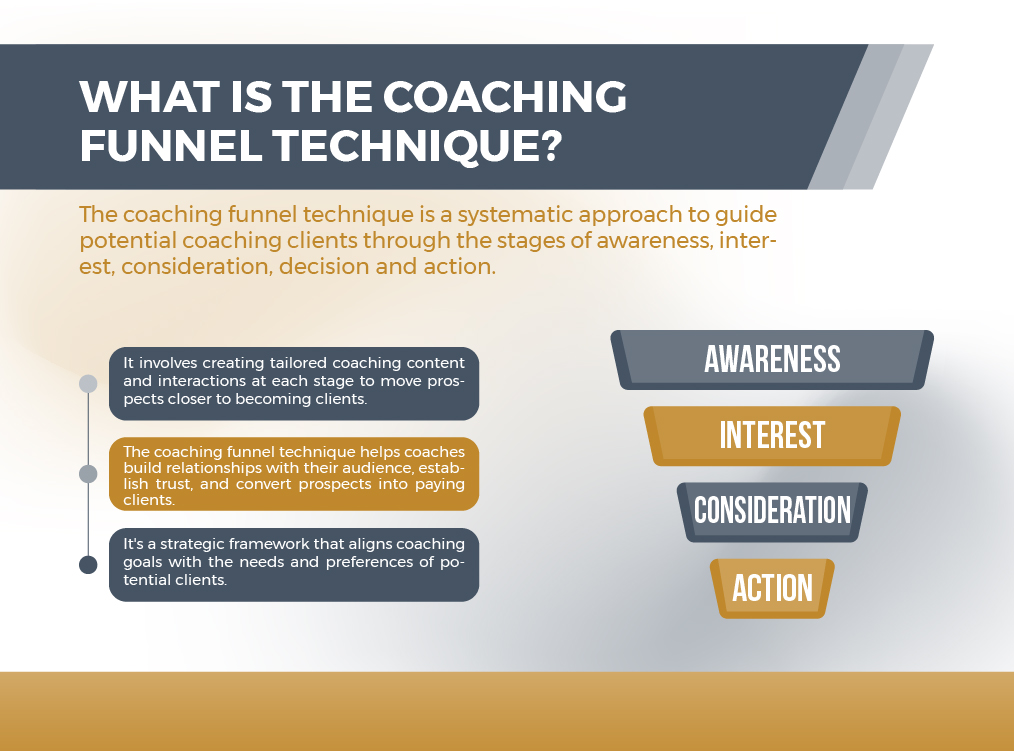
The coaching funnel technique is a systematic approach to guide potential coaching clients through the stages of awareness, interest, consideration, decision, and action.
It involves creating tailored coaching content and interactions at each stage to move prospects closer to becoming clients.
The coaching funnel technique helps coaches build relationships with their audience, establish trust, and convert prospects into paying clients.
It’s a strategic framework that aligns coaching goals with the needs and preferences of potential clients.
What Is The Sales Funnel For Coaching Business?
A sales funnel for a coaching business is a strategic framework that guides potential clients through several steps. These steps are designed to build trust, establish a relationship, and ultimately convert leads into paying clients. The concept of a sales funnel is based on the idea. Because not all prospects are ready to buy immediately.
As a result, lead them through a series of ultimate leads that will lead them to buy or sign up for your coaching services.
Think of it as a journey where you nurture and build relationships with your audience, moving them from awareness to conversion.
This funnel may include various touchpoints and strategies, such as
- Blog posts and educational content to attract prospects.
- Lead magnets and opt-in forms to capture contact information.
- Email sequences to nurture leads and build relationships.
- Consultation calls or discovery sessions to convert leads into clients.
- Post-coaching support and additional offers to retain clients.
The goal of a coaching business’s sales funnel is to guide prospects through each stage and convert them into satisfied, long-term customers.
Why Coaching Is Essential For A Successful Sales Funnel?
Coaching plays a vital role in building a successful sales funnel. It provides guidance and support to individuals navigating the complex world of marketing and sales. With the right coaching, you can maximize your results and achieve your business goals.
Coaching helps you gain clarity on your target audience and their pain points. By understanding who you’re selling to and what challenges they face, you can tailor your messaging to resonate with them.
With coaching, you can develop an assertive and compelling sales pitch. A coach can provide valuable feedback on your pitch, helping you refine it for maximum impact.
Moreover, coaching is essential for providing ongoing value and building trust with potential clients. Through personalized coaching programs, you can offer valuable insights, tips, and resources that demonstrate your expertise in solving their problems.
Additionally, a coach can help analyze data, such as conversion rates or customer feedback, to identify areas that need improvement or optimization.
How To Create A Sales Funnel Coaching For Maximum Results
-
Setting Clear Objectives
Before diving into creating your sales funnel coaching system, it’s essential to set clear objectives. What do you want to achieve with your coaching services? Your objectives might include:
- Attracting a specific number of high-ticket coaching clients per month.
- Increasing your coaching program’s revenue by a certain percentage.
- Expanding your coaching business to a new niche or market.
By defining your objectives, you’ll have a clear direction for your sales funnel strategy.
-
Understanding Your Target Audience and Their Pain Points
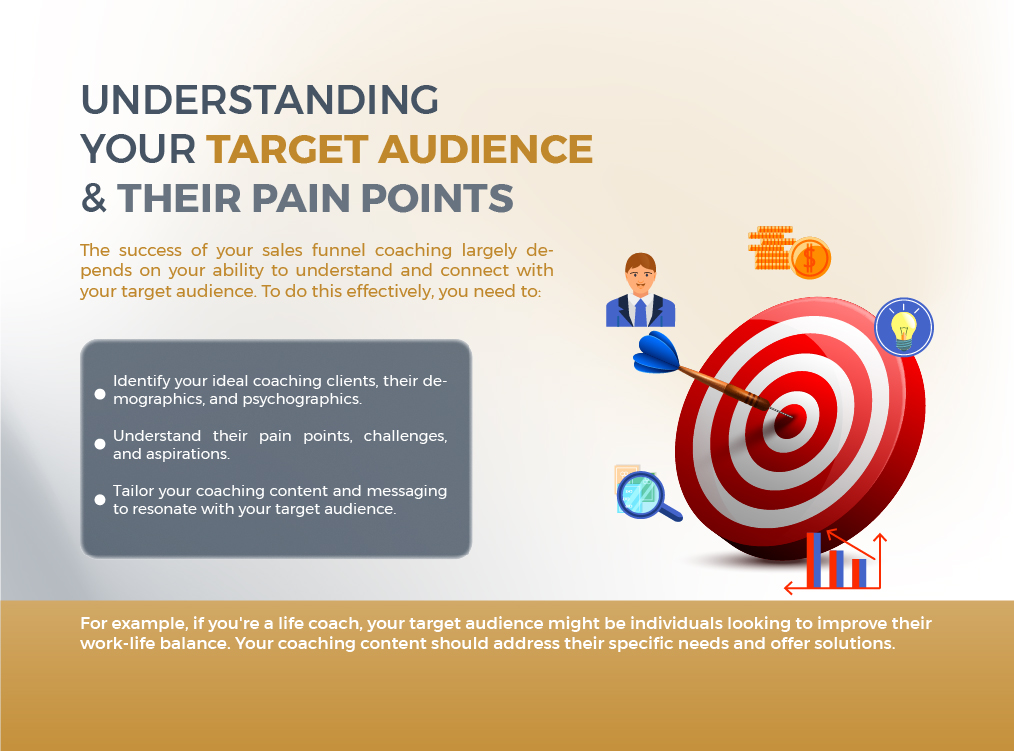
The success of your sales funnel coaching largely depends on your ability to understand and connect with your target audience. To do this effectively, you need to:
- Identify your ideal coaching clients, their demographics, and psychographics.
- Understand their pain points, challenges, and aspirations.
- Tailor your coaching content and messaging to resonate with your target audience.
For example, if you’re a life coach, your target audience might be individuals looking to improve their work-life balance. Your coaching content should address their specific needs and offer solutions.
-
Crafting Your Coaching Content
Creating valuable coaching content is crucial at every stage of the sales funnel. Your content should:
- Educate and inform your audience about the benefits of coaching.
- Showcase your expertise and unique coaching approach.
- Build trust and rapport with potential clients.
Consider offering a mix of content formats, such as blog posts, videos, webinars, and free resources like e-books or templates. This variety can cater to different learning preferences and engage a broader audience.
-
Implementing Effective Coaching Techniques
Coaching is not just about delivering content; it’s about guiding and supporting your clients on their journey to personal or professional growth. Effective coaching techniques include:
- Active listening and empathy: Understand your client’s needs and concerns.
- Asking powerful questions: Encourage self-reflection and insight.
- Providing constructive feedback: Help clients identify areas for improvement.
- Goal setting and accountability: Keep clients motivated and on track.
Your coaching methods should align with your target audience’s preferences and the stage of the sales funnel they are in.
-
Automation and Technology
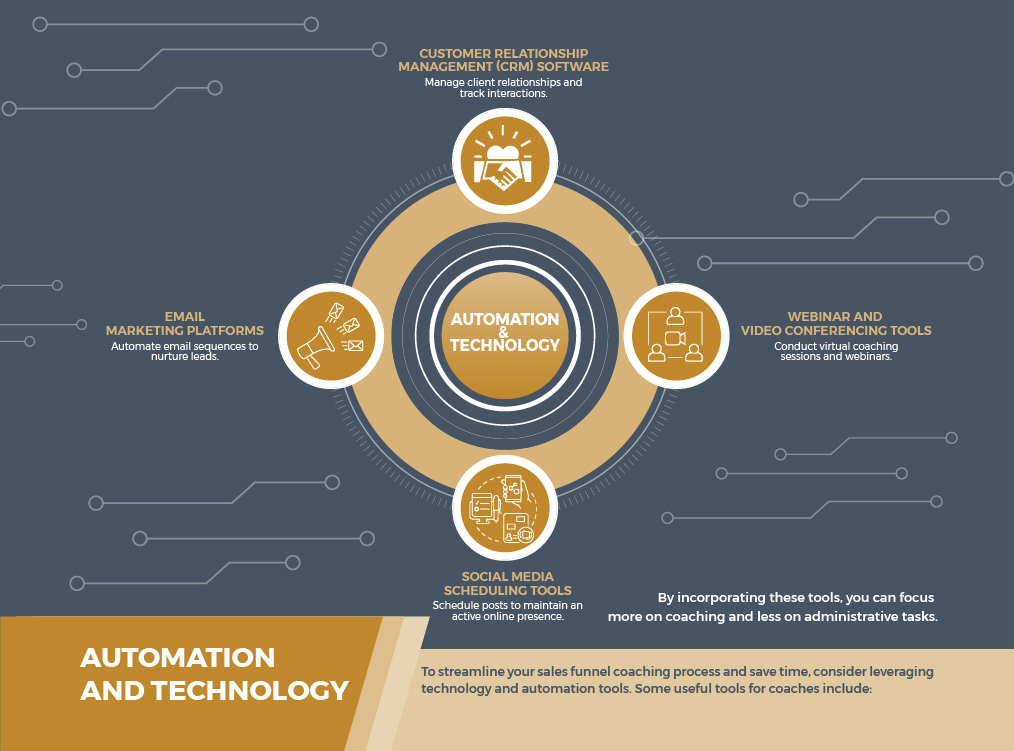
To streamline your sales funnel coaching process and save time, consider leveraging technology and automation tools. Some useful tools for coaches include:
- Customer Relationship Management (CRM) software: Manage client relationships and track interactions.
- Email marketing platforms: Automate email sequences to nurture leads.
- Webinar and video conferencing tools: Conduct virtual coaching sessions and webinars.
- Social media scheduling tools: Schedule posts to maintain an active online presence.
By incorporating these tools, you can focus more on coaching and less on administrative tasks.
-
Tracking and Analyzing Progress
Measuring the effectiveness of your sales funnel coaching system is essential for making improvements. Key performance indicators (KPIs) you might track include:
- Conversion rates at each funnel stage.
- Client retention rates.
- Revenue generated from coaching services.
- Client satisfaction and feedback.
Regularly analyze your data to identify areas for optimization.
-
Nurturing Client Relationships
Successful coaching goes beyond the initial sale. It involves nurturing long-term client relationships. Strategies to achieve this include:
- Providing ongoing support and resources.
- Offering exclusive coaching programs for existing clients.
- Encouraging referrals and testimonials from satisfied clients.
Nurtured relationships can lead to repeat business and referrals, valuable for sustainable coaching success.
-
Maximizing Results
To achieve maximum results from your sales funnel coaching, focus on continuous improvement. Some strategies for optimization include:
- A/B testing different elements of your funnel (e.g., headlines, call-to-action buttons).
- Analyzing the behavior and preferences of your target audience.
- Staying updated with industry trends and coaching best practices.
Remember that a sales funnel is a dynamic system that should evolve as your coaching business grows.
Case Studies of Successful Sales Funnel Coaching Programs
In the world of coaching, success stories are abundant. Many coaches have embraced the power of sales funnels to attract and convert clients effectively.
Let’s look closely at some case studies that highlight how sales funnel coaching programs have generated maximum results.
Case Study 1: John, a job transition coach, used an effective sales funnel strategy. His exciting blog and social media posts captured potential clients’ email addresses. With a free e-book offer, he kept in touch via personalized emails. This approach had a 30% success rate, leading to high-paying clients seeking career guidance.
Case Study 2: Sarah, a diet and weight loss coach, used targeted Facebook ads to attract real people to her coaching services. Using email marketing automation tools, she converted 40% of her leads into paying customers within three months.
These case studies show how niche-specific sales funnel coaching programs may produce outstanding results when done strategically.
Remember – there is no “one-size-fits-all” approach when designing effective sales funnels for coaches. It requires continuous analysis and optimization based on data-driven insights from metrics, such as conversion rates or customer feedback loops.
What Are The Common Problems Encountered By Coaches When It Comes To Designing And Building A Sales Funnel?
As you embark on your sales funnel coaching journey, you may encounter common challenges, such as:
- Lack of Clarity: Coaches sometimes struggle to define their coaching objectives and target audience clearly.
- Content Overload: Providing too much information can overwhelm prospects, leading to a drop-off in the funnel.
- Low Conversion Rates: Converting prospects into paying clients can be challenging without an exciting offer or effective follow-up.
- Technology Hurdles: Some coaches may find it challenging to navigate and utilize automation and technology tools effectively.
- Measuring Success: Determining which metrics to track and how to interpret the data can confuse some coaches.
By being aware of these challenges, you can proactively address them in your sales funnel coaching strategy.
5 Best Funnels For Coaches
Coaches can benefit from various types of sales funnels, depending on their coaching niche and goals. Here are five effective funnels that coaches can consider:
- Free Webinar Funnel: This funnel offers a free webinar that provides valuable insights and a taste of your coaching expertise. Attendees can then opt-in for a paid coaching program or consultation.
- Challenge Funnel: Coaches can create a challenge series. It helps potential clients address a specific problem or achieve a goal. By the end of the challenge, participants are more likely to seek your coaching services.
- Lead Magnet Funnel: Offer a valuable lead magnet, such as an e-book, checklist, or template, in exchange for prospects’ contact information. Once you have their details, you can nurture them through the funnel.
- Discovery Call Funnel: Drive prospects to schedule a free discovery call where you can discuss their needs and how your coaching services can help them. This funnel is effective for high-ticket coaching.
- Content Marketing Funnel: Consistently produce content that educates and engages your audience. As prospects consume your content and build trust in your expertise, they are more likely to inquire about your coaching services.
High Ticket Sales Funnel
Coaches offering high-ticket coaching services face a unique set of challenges and opportunities. To create a high-ticket sales funnel, consider these strategies:
- Value-Driven Messaging: Your funnel should emphasize the exceptional value and results clients can achieve through your high-ticket coaching. Highlight the return on investment (ROI) they can expect.
- Personalization: High-ticket clients often seek personalized experiences. Tailor your coaching content and communication to address their specific needs and goals.
- Educational Webinars: Hosting in-depth webinars that showcase your expertise and the transformational potential of your coaching can be a persuasive way to attract high-ticket clients.
- Limited-Time Offers: Create a sense of urgency by offering limited-time discounts or bonuses for high-ticket coaching packages.
High Ticket Funnel Examples
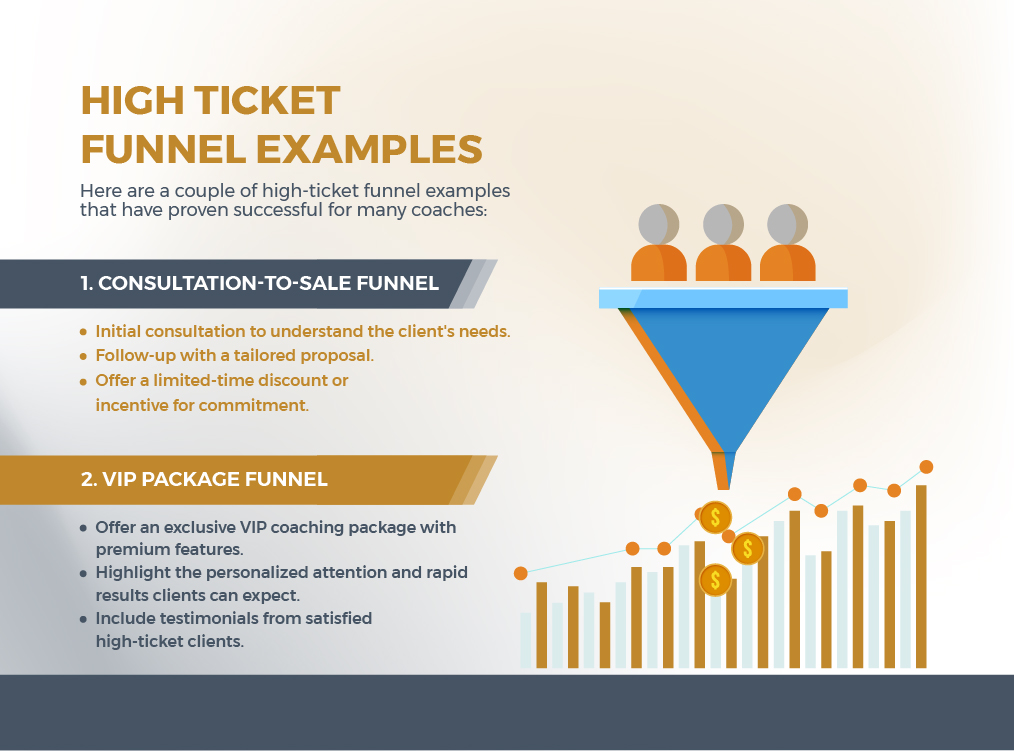
Here are a couple of high-ticket funnel examples that have proven successful for many coaches:
- Consultation-to-Sale Funnel:
- Initial consultation to understand the client’s needs.
- Follow-up with a tailored proposal.
- Offer a limited-time discount or incentive for commitment.
2. VIP Package Funnel:
- Offer an exclusive VIP coaching package with premium features.
- Highlight the personalized attention and rapid results clients can expect.
- Include testimonials from satisfied high-ticket clients.
How To Get High Ticket Coaching Clients?
Acquiring high-ticket coaching clients requires a strategic approach:
- Targeted Marketing: Focus your marketing efforts on platforms and channels where your high-ticket audience spends their time.
- Build Authority: You can become an expert in your coaching area by writing thought leadership articles, giving talks, and working with others.
- Referral Partnerships: Partner with other professionals or businesses that cater to a similar audience and can refer high-ticket clients to you.
- Client Testimonials: Showcase success stories and testimonials from high-ticket clients to build trust and credibility.
- Clear Value Proposition: Communicate the unique value and outcomes high-ticket clients can expect from your coaching services.
Final Thoughts
We hope you understand how to create sales funnel coaching. Combining the power of sales funnels with coaching can be a game-changer for your business.
By understanding your target audience, crafting an effective sales pitch, providing value, building trust, and measuring success, you can create a sales funnel coaching program that maximizes results.
But it doesn’t stop there. Continuous improvement is key. As you implement your sales funnel coaching program, measure and analyze its success.
Also, coaches often encounter challenges when creating sales funnels. These challenges may include difficulties in identifying target audiences or creating effective lead magnets.
By being aware of these problems, you can find solutions that work for you.
Finally, if you need help, don’t hesitate to seek assistance. To create a successful sales funnel, Skyrocket Coach can provide expert guidance. With the right tools and techniques, you can attract high-quality leads for your company.
FAQs About How To Create A Sales Funnel Coaching
Can a sales funnel coaching strategy work for different coaching niches?
Yes, it can. Tailor your approach to suit your coaching niche and target audience for maximum impact and success.
What is a sales funnel for life coaching?
A sales funnel for life coaching is a structured process that guides potential clients from awareness to becoming clients. It involves stages like awareness, consideration, and decision, where you build trust and offer coaching services tailored to personal growth and life transformation.
How to create a sales funnel coaching free?
To create a free sales funnel coaching, offer valuable content like webinars or e-books to attract prospects. Nurture them with email sequences, provide insights, and offer coaching services. It’s a cost-effective way to convert leads into paying clients.

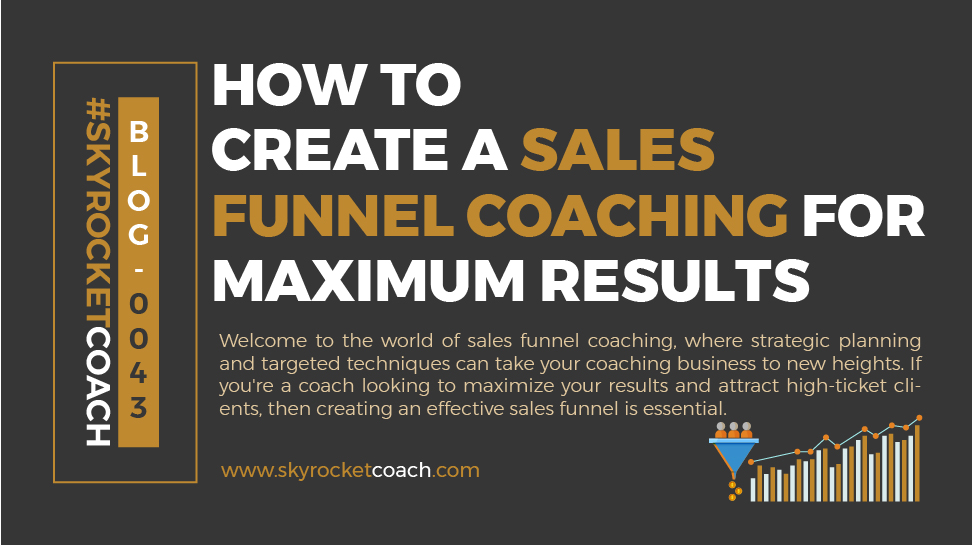
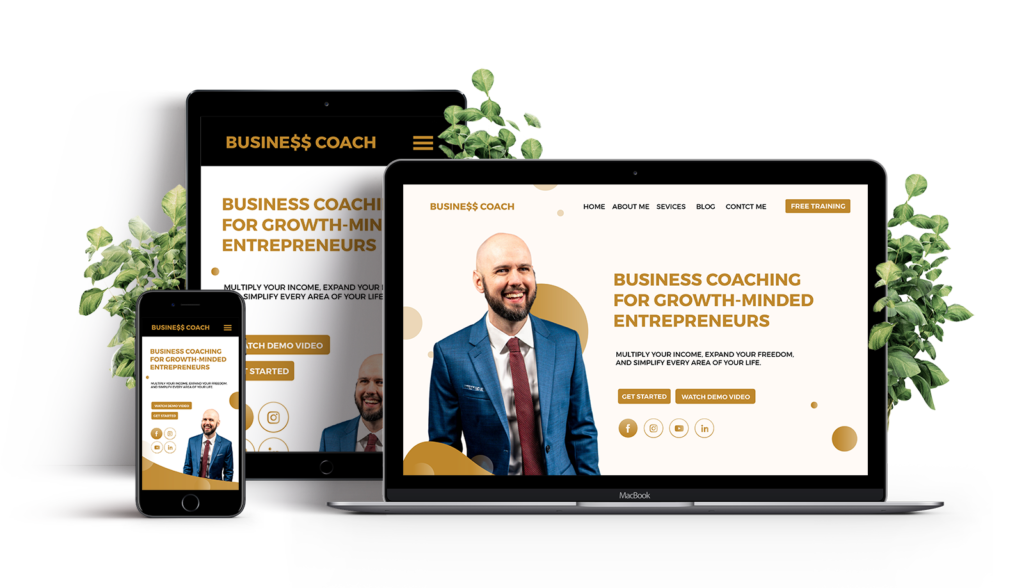
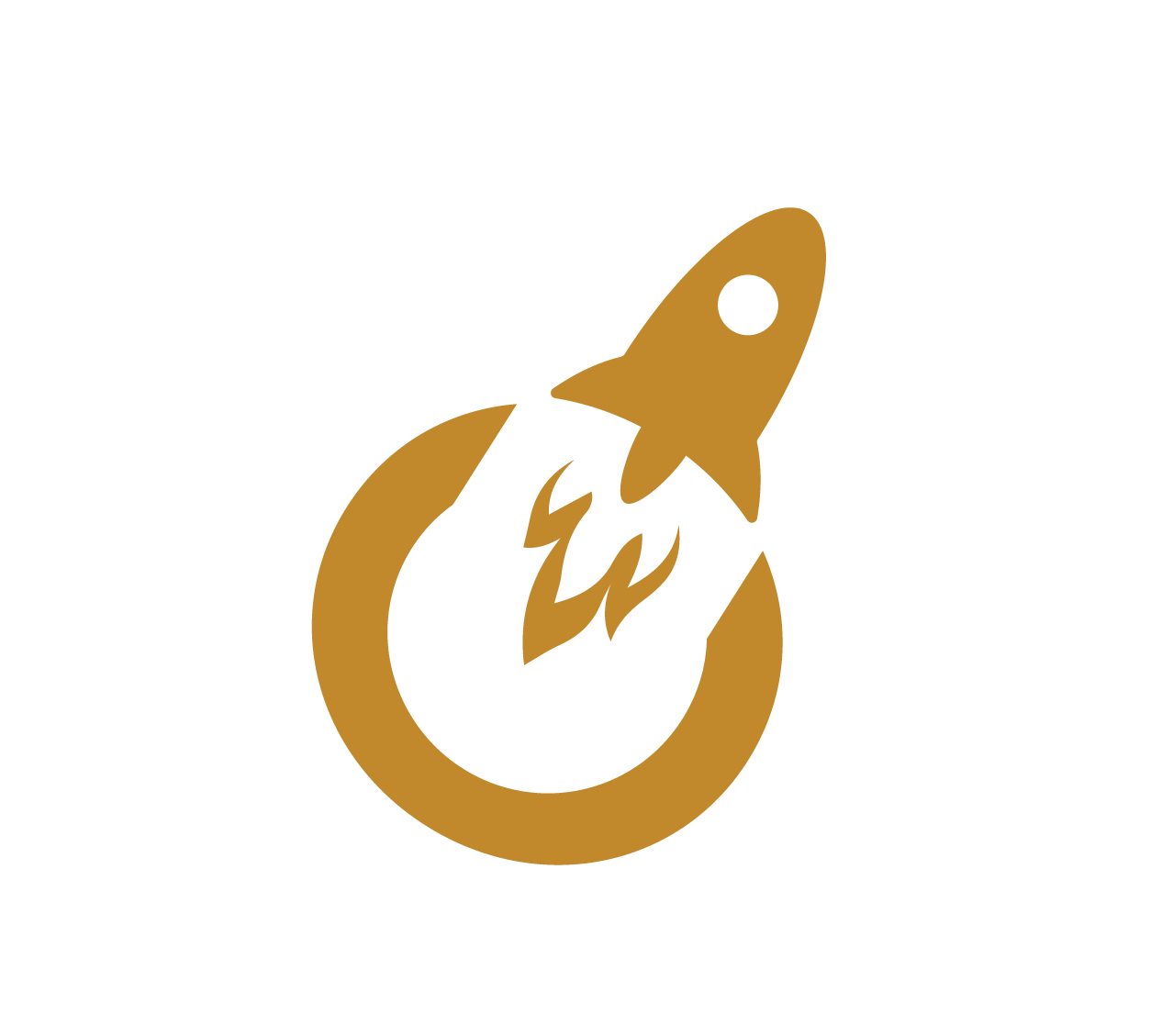
Recent Comments